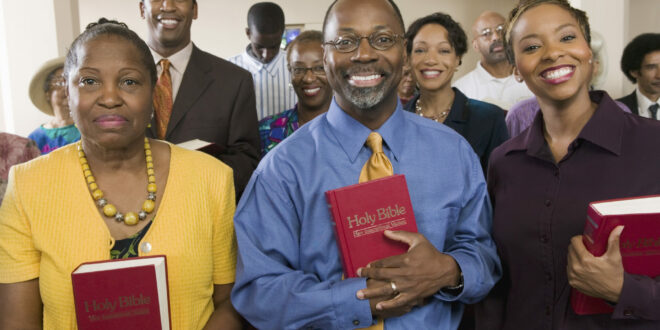When church congregations meet we normally don’t get to know one another on a more personal level. There is casual conversation. Sometimes conversations get more intimate, but it is true that people go to church to worship, pray and sing together, and for fellowship, not to talk about personal or family problems, or emotional and relational issues. This is where small groups play a vital role in the lives of believers.
In every congregation are people with “hidden hurts.” There are issues that others don’t know anything about, and they won’t come to the surface because there is a risk of sounding unspiritual. But the emotional/relational issues are not necessarily linked to the spiritual. However, small groups offer a safe and appropriate environment in which to bring things not talked about in church out in the open. This can be an avenue for building common bonds among church-goers because others may be experiencing the same problems.
It is imperative that churches of all sizes have small group ministries, even the small ones. They should not be considered an option, but a necessity. Normally they meet in people’s homes, but they could also be held in the church building, or in good weather, outdoors.
Jesus had a small group of 12 disciples. The first century New Testament believers gathered in homes. Read Acts 2:46-47. Discussion can be centered around a particular book in the Bible. In a church I attended once the small group met to discuss the pastor’s sermon. There are all kinds of formats that can be used, and small groups can have community projects or outreach ministries. They can also be structured to address those “hidden hurts” in the congregation.
Pastor Peter Scazzero writes, “Our church does not simply offer small groups…around Scripture, but also around emotionally healthy skills and relationships. We focus on topics, such as speaking and listening, handling anger constructively, fighting fairly(conflict resolution), faulty thinking, expectations and breaking the power of the past. We recognize that both spiritual practices…and emotionally healthy practices…are essential if we are to mature in Christ.”*
Small groups are not a time to cry on another’s shoulders, but to bear one another’s burdens, or to restore one to the faith, as it says in Galatians 6:1-2– “Brothers, if anyone is caught in any transgression, you who are spiritual should restore him in a spirit if gentleness. Keep watch on yourself, lest you too be tempted. Bear one another’s burdens, and so fulfill the law of Christ.”
Another added advantage of small groups meeting in homes is that they are more conducive for non-believers, who otherwise would not go into a church.
Let’s be reminded that the Church is not a building. The family of God consists of those who have put their faith and trust in the Savior, Jesus Christ, regardless of where it meets. Matthew 18:20 says, “Where two or three are gathered in my name, there am I among them.”
Christian, you need the support and fellowship of other believers. Getting involved in a small group ministry is the place to begin. If your church doesn’t have one, encourage your pastor to start one, and get involved. Your church will be better off for it, both spiritually and emotionally.
*Peter Scazzero, The Emotionally Healthy Church, Zondervan, 2003, pg. 104
 The Bottom Line, Ministries Christian News, Articles, & Poetry
The Bottom Line, Ministries Christian News, Articles, & Poetry 





Such an important value of being Christian, great message John.
Small groups for me personally, always seem to “penetrate” more successfully in terms of the word.
I’ve had many small bible groups – and it always was on “fire” for the LORD.
Thanks John for this great reminder.
God Bless~
YES JOHN
IN CHINA.. WE MEET IN SMALL GROUPS AS UNABLE TO MEET IN LARGE GROUPS
SO IS IMPORTANT FOR ALL CHURCHES TO HAVE THESE WARM BLANKET GROUPS
THANKS JOHN